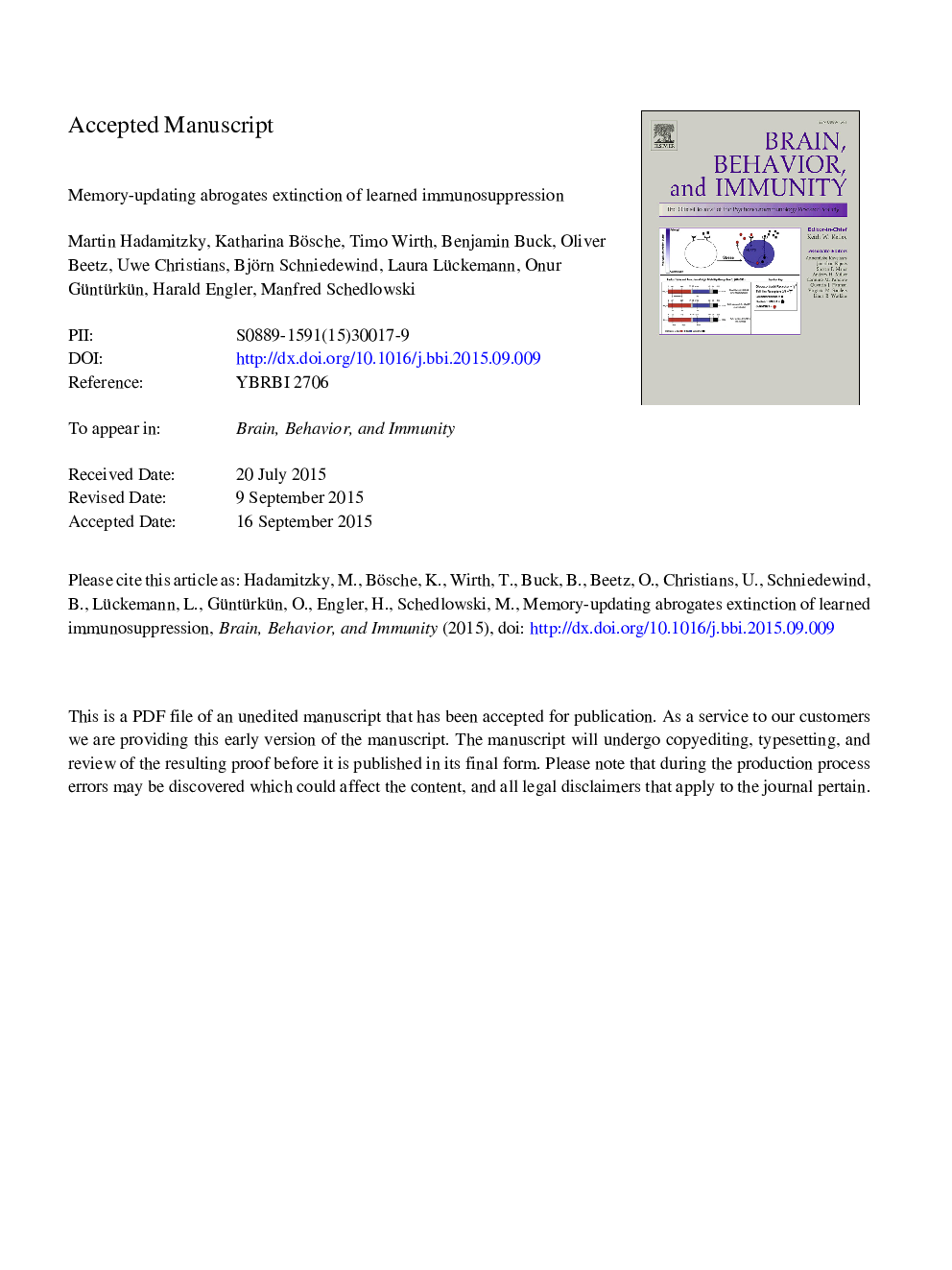| Article ID | Journal | Published Year | Pages | File Type |
|---|---|---|---|---|
| 7280547 | Brain, Behavior, and Immunity | 2016 | 29 Pages |
Abstract
When memories are recalled, they enter a transient labile phase in which they can be impaired or enhanced followed by a new stabilization process termed reconsolidation. It is unknown, however, whether reconsolidation is restricted to neurocognitive processes such as fear memories or can be extended to peripheral physiological functions as well. Here, we show in a paradigm of behaviorally conditioned taste aversion in rats memory-updating in learned immunosuppression. The administration of sub-therapeutic doses of the immunosuppressant cyclosporin A together with the conditioned stimulus (CS/saccharin) during retrieval blocked extinction of conditioned taste aversion and learned suppression of T cell cytokine (interleukin-2; interferon-γ) production. This conditioned immunosuppression is of clinical relevance since it significantly prolonged the survival time of heterotopically transplanted heart allografts in rats. Collectively, these findings demonstrate that memories can be updated on both neural and behavioral levels as well as on the level of peripheral physiological systems such as immune functioning.
Related Topics
Life Sciences
Immunology and Microbiology
Immunology
Authors
Martin Hadamitzky, Katharina Bösche, Timo Wirth, Benjamin Buck, Oliver Beetz, Uwe Christians, Björn Schniedewind, Laura Lückemann, Onur Güntürkün, Harald Engler, Manfred Schedlowski,
